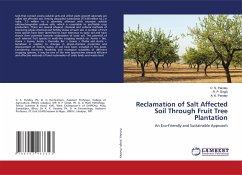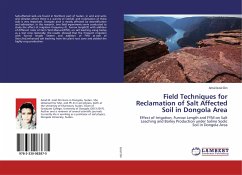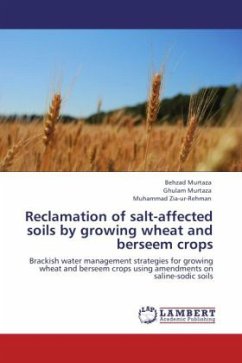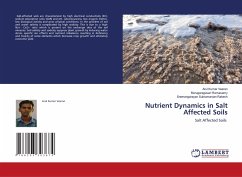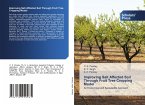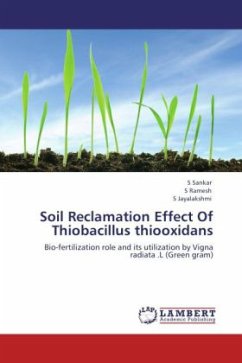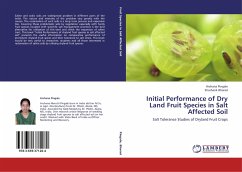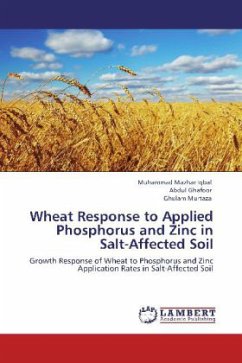Soils that contain excess soluble salts and affect plant growth adversely are called salt affected soil. Among degraded wastelands (173.08 million ha.) in India, 7.0 million ha is adversely affected with excessive soluble salts/exchangeable sodium salts, which is unsuitable to profitable crop production. There are several physical, chemical and cultural methods of improving physic-chemical and fertility status of such soil. A number of fruit trees species have been identified to have tolerance to sodic soil and have shown their potential towards reclamation of sodic soil. The potential of such tolerant fruit species in multi-tire cropping models viz. Aonla + Ber, Aonla + Guava, Aonla + Karonda, Ber + Guava + Phalsa and Aonla + Subabool in relation to changes in physic-chemical properties and improvement of fertility status of soil have been included in this book. Considering economic feasibility and ecological suitability of different cropping systems, it may be one of the new approaches towards efficient and effective methods of land reclamation of sodic lands and waste land.

